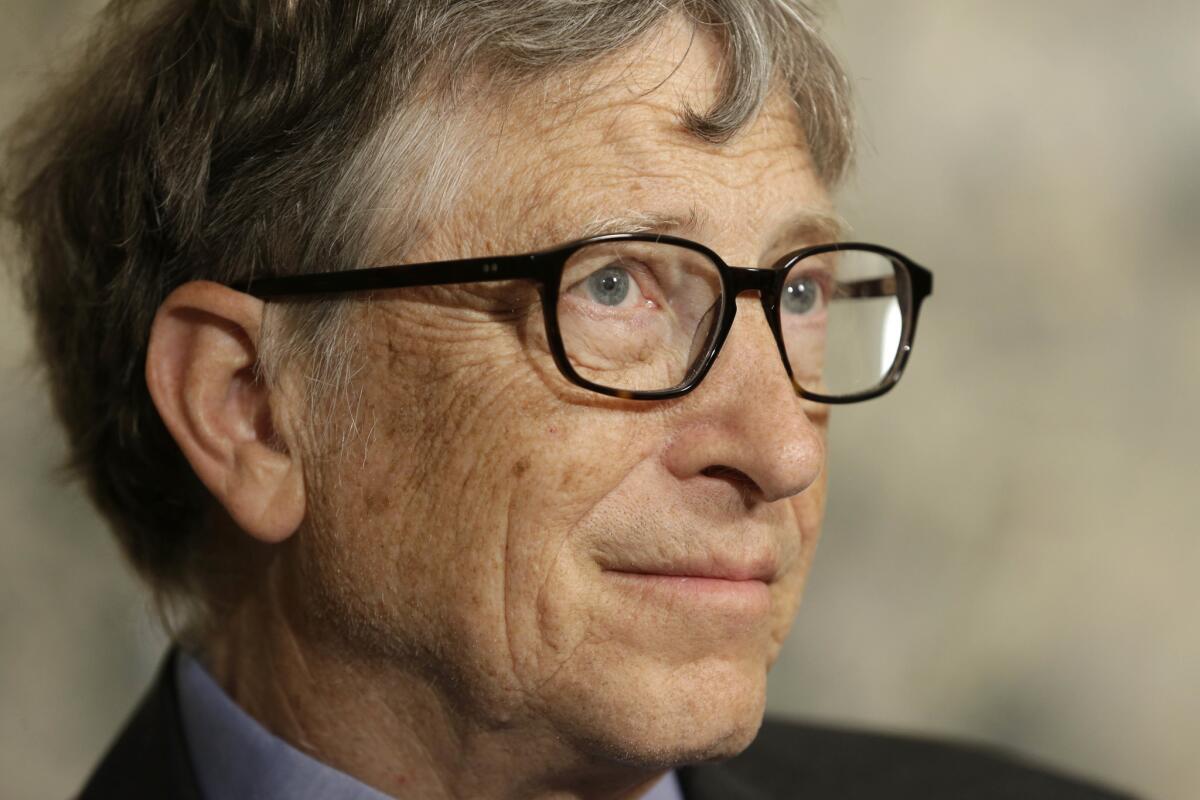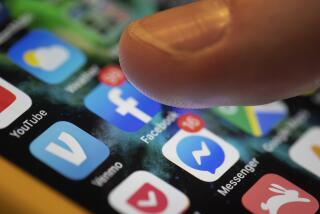Bill Gates on Apple-FBI fight: ‘Government shouldn’t have to be completely blind’

Microsoft cofounder Bill Gates speaks in New York on Monday.
Microsoft Corp. cofounder Bill Gates has jumped into the debate over Apple Inc.’s fight with the FBI over unlocking an iPhone used by one of the shooters in the San Bernardino attack, saying “the government shouldn’t have to be completely blind.”
In an interview with the Financial Times published early Tuesday, Gates disagreed with Apple Chief Executive Tim Cook’s stance that creating the software requested by the federal government would build a back door that would make its products’ security easier to breach.
“This is a specific case where the government is asking for access to information,” he said. “They are not asking for some general thing, they are asking for a particular case.”
What do you think of his comments? Join the conversation on Facebook >>
Later Tuesday morning, Gates tempered his remarks in an interview on Bloomberg Go, saying he was disappointed by reports that he backed the FBI.
“That doesn’t state my view on this,” he said. “I do believe there are sets of safeguards where the government shouldn’t have to be completely blind.”
Gates said there needs to be a balance between privacy and government access to information. Ultimately, he said, the courts will decide this issue.
“You don’t just want to take the minute after a terrorist event and swing that direction, nor do you, in general, want to completely swing away from government access when you get some abuse being revealed,” Gates said. “You want to strike that balance.”
“Clearly the government’s taken information historically and used it in ways we didn’t expect, going all the way back to the FBI under J. Edgar Hoover,” he said.
Last week, Apple opposed a federal judge’s order demanding it help unlock an iPhone used by Syed Rizwan Farook, one of the shooters in December’s terrorist attack in San Bernardino.
The Cupertino, Calif., company said it objected to the court order because the order could set a legal precedent that could expand the government’s powers and possibly lead to requests for software that would enable officials to do other things, such as record conversations or track a user’s location.
Other tech leaders have also spoken out about the issue, such as Twitter Inc. Chief Executive Jack Dorsey and Google Chief Executive Sundar Pichai, who tweeted their support for Cook and Apple last week.
“We know that law enforcement and intelligence agencies face significant challenges in protecting the the public against crime and terrorism,” Pichai said on Twitter. “We built secure products to keep your information safe, and we give law enforcement access to data based on valid legal orders.”
“But that’s wholly different than requiring companies to enable hacking of customer devices & data,” Pichai tweeted. “Could be a troubling precedent.”
In a motion filed Friday seeking to compel Apple to comply with the judge’s order, federal prosecutors said they were not asking for a master key for all Apple phones, but rather software to unlock this particular phone. It said the company could keep the software and destroy it after it was used.
Apple has said that if it creates that software, it would be “relentlessly attacked by hackers and cybercriminals” looking to steal the software and that the best way to ensure it does not end up in the wrong hands is to never create it.
For more business news, follow @smasunaga.
MORE ON APPLE VS. FBI
In the fight to unlock iPhones, the U.S. government has more to lose than Apple
How you might feel about Apple right now if your boyfriend died in San Bernardino
Car makers had to install air bags; shouldn’t Apple have to hack its iPhone?







